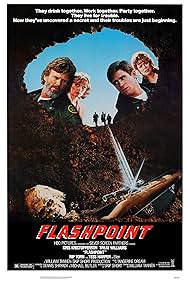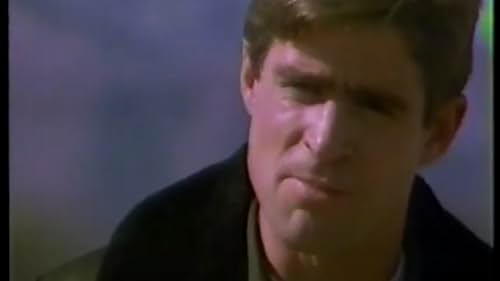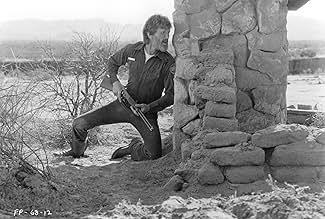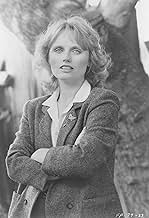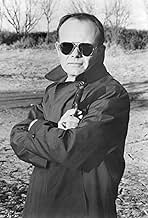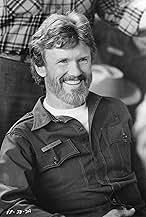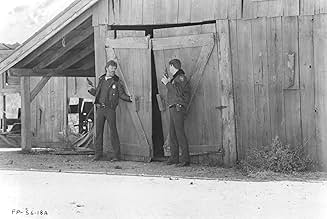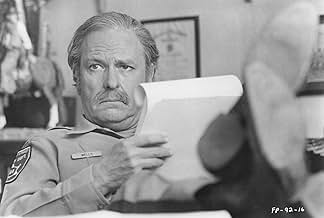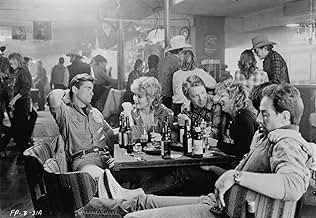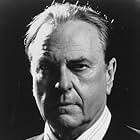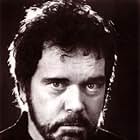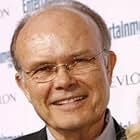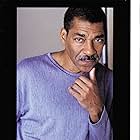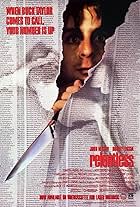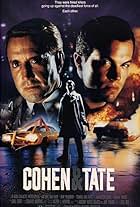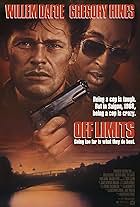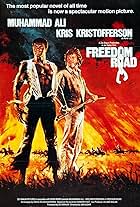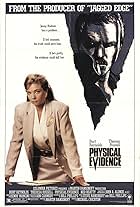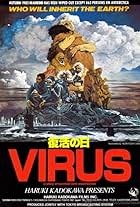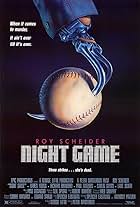VALUTAZIONE IMDb
6,4/10
3295
LA TUA VALUTAZIONE
Aggiungi una trama nella tua linguaTwo U.S. border patrolmen find a buried 20+ year old jeep in the desert with a skeleton, rifle and $800,000. They keep the money. Suddenly, the FBI shows a lot of interest in the car.Two U.S. border patrolmen find a buried 20+ year old jeep in the desert with a skeleton, rifle and $800,000. They keep the money. Suddenly, the FBI shows a lot of interest in the car.Two U.S. border patrolmen find a buried 20+ year old jeep in the desert with a skeleton, rifle and $800,000. They keep the money. Suddenly, the FBI shows a lot of interest in the car.
Miguel Ferrer
- Roget
- (as Miguell Ferrer)
Ana Auther
- Roget's Date
- (as Ana Marie Auther)
Trama
Lo sapevi?
- QuizWhen director William Tannen hired Tangerine Dream to score the film, he told them not to do the end title song because he had one he was using - "Sympathy For The Devil" by The Rolling Stones. Tangerine Dream said it was the perfect song to end the film with. They scored the entire film but this piece. The studio felt the song was too expensive and instead gave the assignment to an assistant who worked for one of the vice presidents. It was voted "worst" end title song for 1984 by the film critic Leonard Maltin.
- BlooperThe film is supposed to take place in Texas but there are numerous scenes where saguaro cacti is visible. Saguaro don't grow in Texas.
- ConnessioniFeatured in RoboDoc: The Creation of RoboCop: Verhoeven's Mantra (2023)
Recensione in evidenza
I can just picture the expressions on the faces of Treat Williams and Kris Kristofferson, a pair of actors whose talents haven't always been well utilized by Hollywood, after reading this script. One can imagine them scrambling for the phone, knocking things over, frantically dialing their agent's number and blurting out "Yes! Yes! I'll do it! Are you kidding? Hell, I'll do it for free!" Films this bold and unspoiled don't come along very often these days.
Blends elements of works as diverse as "A Simple Plan", "The Parallax View", "All The President's Men", "The X-Files" and even Orwell's "1984" (the motion detector plot point) to create a sublime, spine-tingling mystery. The first time director William Tannen, approaches the disturbing central theme of his piece in a startlingly original way. He circles it, surrounds it, then closes in with the cunning of a fox and the daring of an assassin. There are subtle (very subtle) hints along the way, particularly if you listen closely to steel-eyed Kurtwood Smith's jaw-dropping diatribe in which he blisters the so-called "American Way" in no uncertain terms. "This whole f***ing nation is politics" he hisses. But they are merely hints making the slyly implied, almost subliminal conclusion that much more of a stunner. Undoubtedly a film that requires its audience to pay extremely close attention to every line, every gesture, every nuance, every single frame of film. The attentive viewer will be amply rewarded.
Williams and Kristofferson are weary, prankish (think Hawkeye and Honeycutt from M*A*S*H) border patrol officers waging a futile battle against the steady flow of illegal immigration from Mexico into Texas. K.K. is a laid back cynic, a decorated Vietnam veteran with an easy-going disposition that masks a simmering resentment towards lock-kneed bureaucracy. Williams is a stubborn, uneducated idealist, a hothead unafraid to speak out against the injustice, corruption and plain foolishness he encounters on his job every day. K.K. no longer has any illusions about "making a difference" but loves the feeling of riding around in his jeep through a beautiful lonely desert, and glories in the thrill of the chase. Williams clings to the slippery notion that, despite his shortcomings, he's one of the last of the good guys, that his uniform does indeed stand for something decent and noble. Their friendship and camaraderie is deep and real in a way few in movies out of Hollywood ever are.
The two of them are in a state of increasing anxiety as a result of their superiors' arrogant, short-sighted decision to rely on a new motion detector technology to "assist" border patrol units in performing these difficult, high stress jobs. K.K. and Williams are convinced that this reliance will at worst render 3/4 of uniformed personnel useless and soon put them out of work, and at best will severely alter the complexion of their day to day duties. They fear it will rob them of their sense of freedom and adventure. (Williams is by no means thrilled at the prospect of sitting in a room staring at a computer screen all day.)
Fed up, they are both looking for a ticket out. K.K. seems to find one in the form of a wrecked jeep buried under mounds of dirt and mud in the middle of nowhere. He unearths $800,000 in cash in the wreckage as well as the driver's skeletal remains. A look at the corpse's license reveals that, amazingly, he must have been rotting there undiscovered for at least 20 years, placing his last moments alive somewhere in the early 1960's. Wisely reasoning that if the money has gone un-missed for that long, he has as much right as anyone else to claim it, K.K. wants to split the cash with his buddy Williams and take off immediately for Mexico. Williams is tempted, as anyone in his shoes would be, but has his doubts. It doesn't pass the smell test and also won't quite square with his nagging personal code of honor.
To placate Williams K.K. allows himself to be talked into doing some detective work first, to see if they're able to determine who exactly the money once belonged to, and whether or not it's clean. At a certain point in this investigation they come to the shocking realization that they're up against an evil so defiant, so entrenched that even when staring down the barrel of a loaded revolver it won't budge an inch. It all hits home in one of the most chillingly emblematic shots in the history of American film: the pair have just made a gruesome discovery inside an abandoned shack in the desert; the camera pulls back to show them staggering outside silently and dropping to their knees in horror against a backdrop of sand and sky.
"Flashpoint" stands besides films such as "Treasure of The Sierra Madre" and Rod Serling's "Patterns" as unflinching, uniquely American movies that reveal more about who we really are at different points in our tumultuous history than just about any other hundred films combined. It will give future generations a strong sense of what our hopes, our fears, our struggles and suspicions truly were at the time. Its clear-eyed, uncompromised vision is so atypical it's jarring. You keep expecting it to take some wrong turn down Formula Road as so many other conspiracy thrillers do, but it bravely sticks to its narrow, bumpy, unpaved path.
Scoff all you want, and of course this movie has been virtually ignored by critics and audiences for going on 17 years now, but this is one of the best movies of its decade. Rip Torn's sage advice for a shell-shocked Kristofferson at the end will stick with you. "Don't be a martyr. We already got enough of those. Be different. Be the one that got away."
Blends elements of works as diverse as "A Simple Plan", "The Parallax View", "All The President's Men", "The X-Files" and even Orwell's "1984" (the motion detector plot point) to create a sublime, spine-tingling mystery. The first time director William Tannen, approaches the disturbing central theme of his piece in a startlingly original way. He circles it, surrounds it, then closes in with the cunning of a fox and the daring of an assassin. There are subtle (very subtle) hints along the way, particularly if you listen closely to steel-eyed Kurtwood Smith's jaw-dropping diatribe in which he blisters the so-called "American Way" in no uncertain terms. "This whole f***ing nation is politics" he hisses. But they are merely hints making the slyly implied, almost subliminal conclusion that much more of a stunner. Undoubtedly a film that requires its audience to pay extremely close attention to every line, every gesture, every nuance, every single frame of film. The attentive viewer will be amply rewarded.
Williams and Kristofferson are weary, prankish (think Hawkeye and Honeycutt from M*A*S*H) border patrol officers waging a futile battle against the steady flow of illegal immigration from Mexico into Texas. K.K. is a laid back cynic, a decorated Vietnam veteran with an easy-going disposition that masks a simmering resentment towards lock-kneed bureaucracy. Williams is a stubborn, uneducated idealist, a hothead unafraid to speak out against the injustice, corruption and plain foolishness he encounters on his job every day. K.K. no longer has any illusions about "making a difference" but loves the feeling of riding around in his jeep through a beautiful lonely desert, and glories in the thrill of the chase. Williams clings to the slippery notion that, despite his shortcomings, he's one of the last of the good guys, that his uniform does indeed stand for something decent and noble. Their friendship and camaraderie is deep and real in a way few in movies out of Hollywood ever are.
The two of them are in a state of increasing anxiety as a result of their superiors' arrogant, short-sighted decision to rely on a new motion detector technology to "assist" border patrol units in performing these difficult, high stress jobs. K.K. and Williams are convinced that this reliance will at worst render 3/4 of uniformed personnel useless and soon put them out of work, and at best will severely alter the complexion of their day to day duties. They fear it will rob them of their sense of freedom and adventure. (Williams is by no means thrilled at the prospect of sitting in a room staring at a computer screen all day.)
Fed up, they are both looking for a ticket out. K.K. seems to find one in the form of a wrecked jeep buried under mounds of dirt and mud in the middle of nowhere. He unearths $800,000 in cash in the wreckage as well as the driver's skeletal remains. A look at the corpse's license reveals that, amazingly, he must have been rotting there undiscovered for at least 20 years, placing his last moments alive somewhere in the early 1960's. Wisely reasoning that if the money has gone un-missed for that long, he has as much right as anyone else to claim it, K.K. wants to split the cash with his buddy Williams and take off immediately for Mexico. Williams is tempted, as anyone in his shoes would be, but has his doubts. It doesn't pass the smell test and also won't quite square with his nagging personal code of honor.
To placate Williams K.K. allows himself to be talked into doing some detective work first, to see if they're able to determine who exactly the money once belonged to, and whether or not it's clean. At a certain point in this investigation they come to the shocking realization that they're up against an evil so defiant, so entrenched that even when staring down the barrel of a loaded revolver it won't budge an inch. It all hits home in one of the most chillingly emblematic shots in the history of American film: the pair have just made a gruesome discovery inside an abandoned shack in the desert; the camera pulls back to show them staggering outside silently and dropping to their knees in horror against a backdrop of sand and sky.
"Flashpoint" stands besides films such as "Treasure of The Sierra Madre" and Rod Serling's "Patterns" as unflinching, uniquely American movies that reveal more about who we really are at different points in our tumultuous history than just about any other hundred films combined. It will give future generations a strong sense of what our hopes, our fears, our struggles and suspicions truly were at the time. Its clear-eyed, uncompromised vision is so atypical it's jarring. You keep expecting it to take some wrong turn down Formula Road as so many other conspiracy thrillers do, but it bravely sticks to its narrow, bumpy, unpaved path.
Scoff all you want, and of course this movie has been virtually ignored by critics and audiences for going on 17 years now, but this is one of the best movies of its decade. Rip Torn's sage advice for a shell-shocked Kristofferson at the end will stick with you. "Don't be a martyr. We already got enough of those. Be different. Be the one that got away."
I più visti
Accedi per valutare e creare un elenco di titoli salvati per ottenere consigli personalizzati
- How long is Flashpoint?Powered by Alexa
Dettagli
Botteghino
- Budget
- 10.000.000 USD (previsto)
- Lordo Stati Uniti e Canada
- 3.854.833 USD
- Fine settimana di apertura Stati Uniti e Canada
- 1.916.222 USD
- 3 set 1984
- Lordo in tutto il mondo
- 3.854.833 USD
Contribuisci a questa pagina
Suggerisci una modifica o aggiungi i contenuti mancanti

